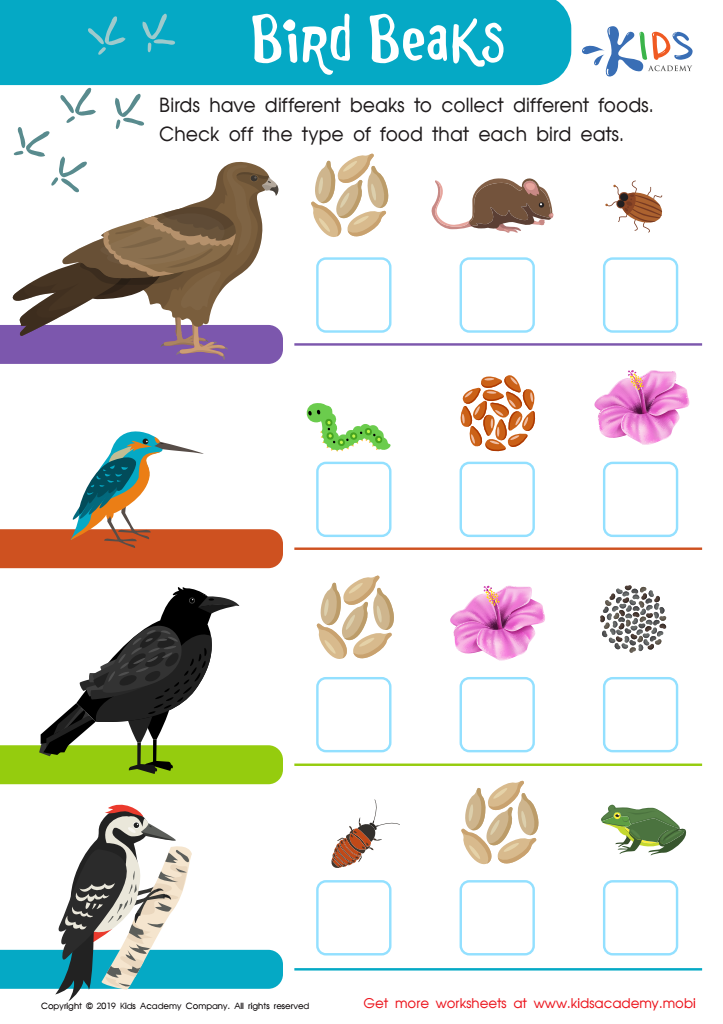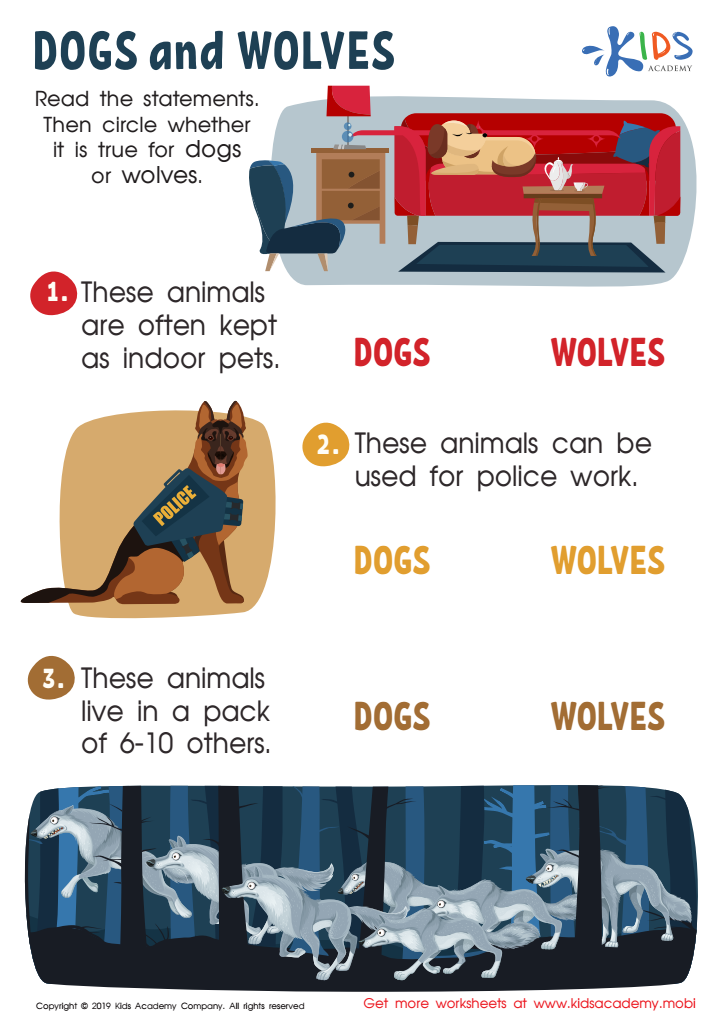Classification skills Normal Worksheets for 7-Year-Olds
5 filtered results
-
From - To
Boost your child's cognitive development with our "Classification Skills Normal Worksheets for 7-Year-Olds". These engaging worksheets are designed to enhance critical thinking by teaching children how to identify, sort, and categorize various objects and concepts. Through fun and interactive activities, kids will improve their ability to recognize patterns, group similar items, and understand relationships between different entities. Ideal for both classroom settings and home practice, these worksheets support essential learning objectives and are perfect for enriching your 7-year-old's educational journey. Start fostering strong classification skills today with our expertly crafted resources!


Matter: Assessment 1 Worksheet


Bird Beaks Worksheet


Dogs and Wolves Worksheet


Animals and Plants: Assessment 2 Worksheet


Space: Assessment 2 Worksheet
Classification skills in 7-year-olds are crucial for several reasons, playing a vital role in their cognitive and academic development. At this age, children naturally begin categorizing objects, ideas, and experiences, which lays the groundwork for complex thought processes. Encouraging and nurturing these skills helps them make sense of the world around them, contributes to their problem-solving abilities, and underpins learning in subjects like math, science, and language arts.
For example, when a child learns to classify animals based on traits (mammals, reptiles, birds), they start to understand ecosystems and biology. In math, classifying objects by shape, size, or color helps in recognizing patterns—a foundational skill for advanced mathematical concepts. In language, organizing words into categories (nouns, verbs, adjectives) aids in understanding grammar and enhancing vocabulary.
Parent and teacher involvement is key to fostering these skills. When adults provide activities that promote sorting, sequencing, and categorization, they create an engaging learning environment that stimulates intellectual curiosity and critical thinking. Effective strategies include using educational games, hands-on projects, and discussions that encourage children to explain their reasoning.
Moreover, these skills support social and emotional development. Understanding categories helps children navigate social situations and develop empathy by recognizing similarities and differences among people. By prioritizing classification skills, parents and teachers contribute significantly to a child’s holistic development, preparing them for more advanced academic challenges and real-world problem-solving.
 Assign to My Students
Assign to My Students















